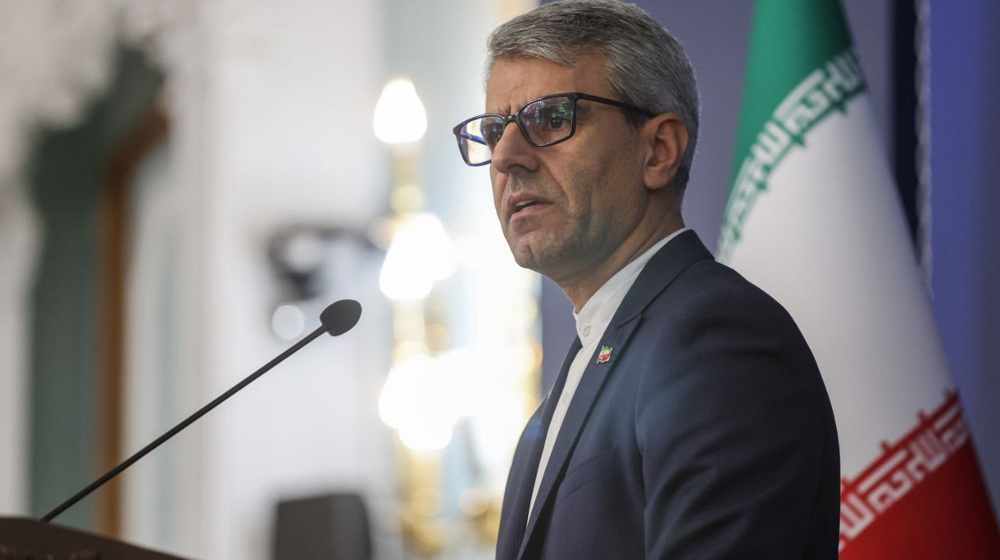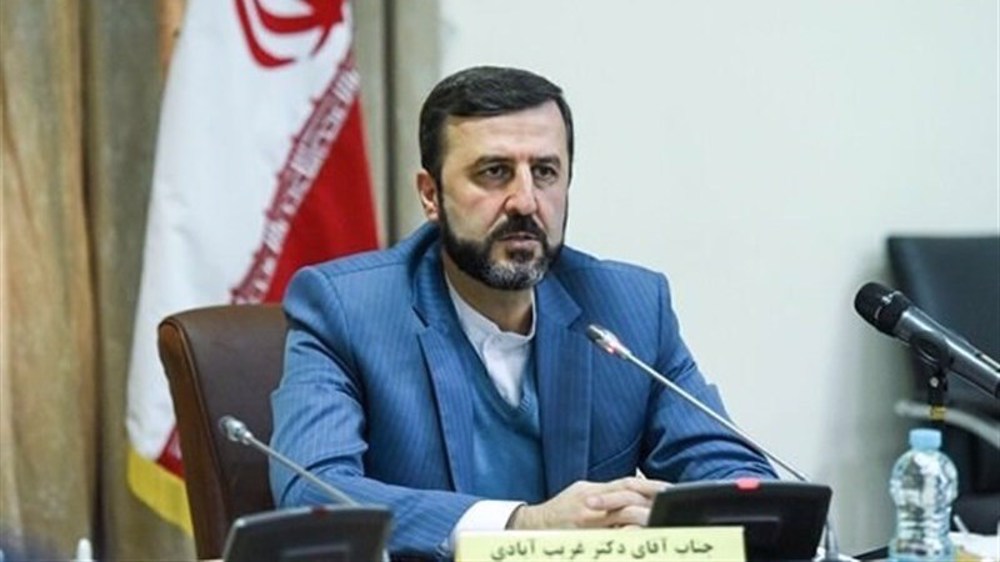China puts forward five-point proposal to save Iran nuclear deal: FM spokeswoman
China vows to continue efforts to safeguard the achievements of a 2015 nuclear agreement Iran signed with the P5+1 group of countries after the United States' withdrawal from the historic deal, saying it has put forward a five-point proposal in this regard.
Speaking at a press briefing in Beijing on Monday, a spokeswoman for Chinese Ministry of Foreign Affairs, Hua Chunying, made the comments in response to a question about a meeting of the foreign ministers of the remaining signatories to the nuclear accord, officially known as the Joint Comprehensive Plan of Action (JCPOA), in the Austrian capital Vienna on Friday.
The top diplomats from France, Germany, Britain, Russia, China and Iran met for the first time since US President Donald Trump pulled Washington out from the deal in May.
"Facing the complicated and stern situation at present, China clearly put up a five-point proposal emphasizing in particular that international rules should be observed, major countries should show their due integrity and sense of responsibility, unilateral sanctions can only run counter to one's desire and should be abandoned, and dialogs and consultations should adhered to a constructive approach in discussions about issues of common concerns," Hua said.
The US president announced on May 8 that Washington was walking away from the nuclear agreement and that he plans to reinstate US nuclear sanctions on Iran and impose "the highest level" of economic bans on the Islamic Republic.
Under the JCPOA, Iran undertook to put limits on its nuclear program in exchange for the removal of nuclear-related sanctions imposed against Tehran.
Iranian Foreign Minister Mohammad Javad Zarif said on Friday that all the remaining signatories to the 2015 nuclear agreement have political will to stand up to the United States' move to withdraw from the deal.
However, he warned that if the European sides failed to properly fulfill their commitments, Iran would take its own measures to counter the US withdrawal from the JCPOA.
The Chinese spokesperson further pointed to the current "critical conjuncture" of the JCPOA and said, "The convening of this foreign ministers' meeting in itself embodies all parties' support for the deal."
She added that the foreign ministers issued a joint statement which "sent out a positive political signal" and noted that the JCPOA parties "demonstrated their clear-cut will to safeguard the deal."
Hua also noted that participants at the Vienna meeting confirmed that Britain together with China would take over the work to modernize Iran's Arak heavy water reactor after the US withdrawal from the JCPOA.
"All parties spoke highly of China for its responsible and constructive attitude, including the stable progress of the renovation of the Arak heavy water reactor led by China," she said.
The spokesman for the Atomic Energy Organization of Iran (AEOI) said in June that the country would soon start re-building the Arak heavy water reactor once China finishes examining the last phase of the re-designing process.
China and Iran “have had several contracts that are now operational and various steps of conceptual, basic and detailed designing are completed and after that the construction phase will begin,” Behrouz Kamalvandi said.
Hua further said Beijing would continue to do its part in the face of the future "tough challenges" to the nuclear deal.
"There is still a long way to go in terms of safeguarding and implementing the Iranian nuclear deal. China will continue making efforts to safeguard the results of multilateralism. China will never accept any unilateral sanctions that are not based on international laws and will firmly uphold its own legitimate rights and interests," she pointed out.
Speaking at a joint news conference with his Turkish counterpart Mevlut Cavusoglu following their meeting in Beijing in June, China's State Councilor and Foreign Minister Wang Yi said dialog and cooperation are key to maintaining the multilateral nuclear agreement.
"Of course, this deal cannot solve all problems, just as an umbrella cannot cover the heads of 100 people. Issues outside the deal should be solved through other dialogs," Wang said, adding, "The key is to be patient and maintain the dialog mechanism instead of resorting to confrontation."
Read more:
- EU, China share commitment to save nuclear deal: Mogherini
- US will never be able to stop Iran oil exports: Rouhani
- Iran will quit nuclear deal if it does not benefit from it: President Rouhani
- 'Dreadful' future awaits world if nuclear deal collapses: Iran's Salehi
- China vows to step up effort to safeguard, implement Iran nuclear deal
Hezbollah condemns Israel's ‘treacherous assassination’ of Al-Housh Mosque imam
Israeli woman shocked after being listed as ‘dead’ in recent Iran riots
Israel clearing northern Gaza land for settlements: Report
Gaza deadliest place for journalists and aid workers: UNRWA chief
Israel claims body of final captive recovered from Gaza
VIDEO | Armed gangs in Gaza at center of brewing power struggle over civil administration
3,500 Iranian cultural, media figures support Leader amid Trump’s threats
Hezbollah chief: New US-Israeli war on Iran will set entire region ablaze













 This makes it easy to access the Press TV website
This makes it easy to access the Press TV website